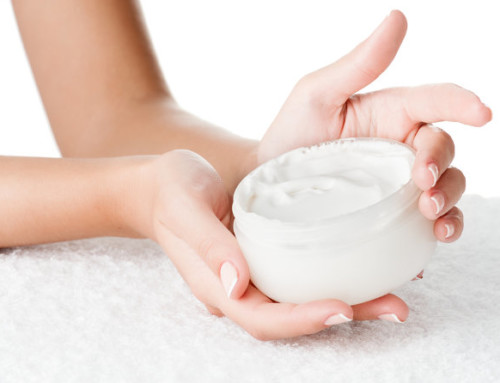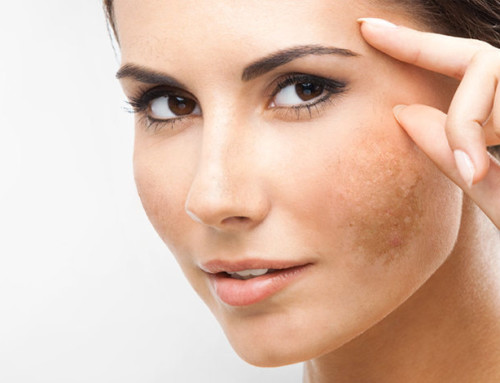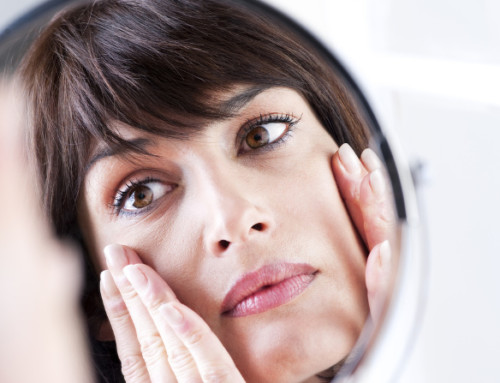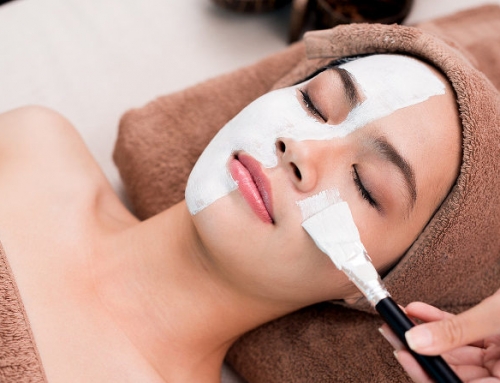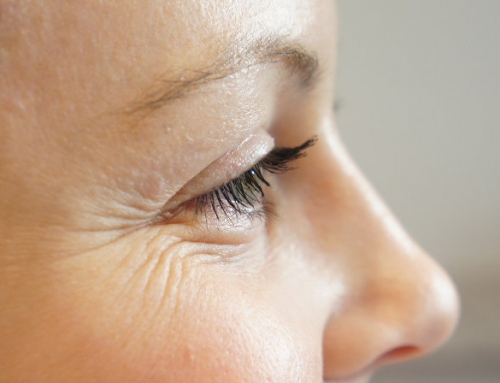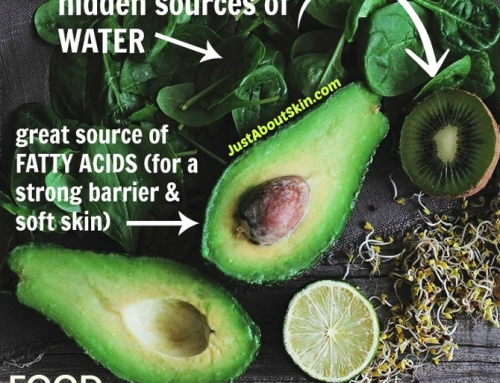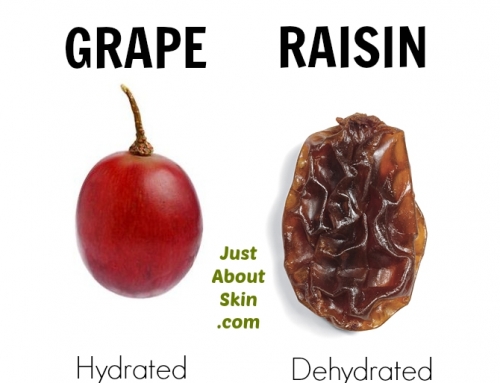It’s a new year! Do you have a New Year’s resolution for your skin? If you don’t, you can check out lists I have made in the past here and here.
This year, instead of creating another list, I thought it’d be interesting to write about one single resolution that applies to everyone. A resolution that we can all agree is desirable. A resolution that is actually achievable. Not just for some people but for everyone.
So, what is it?
Achieving HEALTHY SKIN!
You hear this all the time. Skin professionals and skin care companies love to throw it around and use it in their marketing copy.
Intuitively, it makes complete sense. Healthy is good. Unhealthy is bad. A healthy body looks good and feels good. An unhealthy body leads to sickness and a lower quality of life.
But what exactly does it mean to have healthy skin? I think the definition is fluid. Everyone has his own view of healthy skin. In this post, I offer you mine and simple recommendations for achieving healthy skin.
The Characteristics Of Healthy Skin
It is all too easy to assume that healthy skin means beautiful skin. I don’t think this is a good way to look at it. It’s too easy to get frustrated when our skin is not beautiful. Besides, beautiful is subjective.
Healthy skin is also NOT flawless skin. There is no such thing as flawless skin, unless you’re a baby. We all have inherent flaws in our skin. Some of us have more, and some of us have flaws that persist and besiege us. But flawless is impossible, and a futile goal. Flawless is only possible through makeup and Photoshop.
The most defining characteristic of healthy skin, in my opinion, is the same defining characteristic of a healthy body – the ability to fight injury and disease quickly and effectively.

Let’s look at a healthy body first. We are surrounded and inundated by germs, chemical and biological irritants, contaminated air and water, pollutants, toxins, UV radiation, and so on every day of every year. How do we not get sick? A strong immune system, a strong cardiovascular system that pumps blood efficiently, and a healthy brain that can detect and coordinate quick responses to disease-causing microbes or chemicals.
The skin is in fact the body’s primary defense system against foreign particles, microbes, and UV radiation. Its main function is protection. Everything inside the body needs protection from the outside.
In order to have healthy skin, you must have a strong barrier function. This is such a boring phrase. I wish “barrier function” was called a different name, one more appealing and intuitive. Who wants to learn about barrier function? Every time I mention this phrase, I know at least half my readers’ eyes will glaze over.
But it’s a really important term. The most important term in skincare, if you ask me. You can read all about it here: The Skin’s Barrier Function.
In essence, the barrier function is your skin’s ability to resist insults. Insults can be any disturbance that causes a harmless, mild rash to a life-threatening bacterial infection. Here are some examples:
- skin care products whose ingredients irritate skin
- bacteria, viruses, fungi, and parasites
- insect or animal bites
- plants that cause allergy
- over-exfoliating skin
- over-cleansing skin
- using an astringent toner that strips away oil
- heat, steam, or hot water
- picking at skin (squeezing blackheads, popping pimples)
- a sunburn
- a wound or injury (e.g. cut that causes bleeding, punch that causes bruising)
- an inflamed or cystic pimple
- surgery or cosmetic procedure
- a chronic skin disorder or disease
When you have a strong barrier function, your skin is more resistant to these insults. I like to refer to this as strong skin. You are less likely to experience discomfort or pain if your skin is aggravated. Visible signs of a bad product reaction, such as redness, itching, swelling, and dryness are less intense and don’t last as long. If something bad happens to your skin, you heal faster. Someone with a weak barrier function will take longer to recover and get their skin back to normal.
When you have a strong barrier function, your skin is also less dry and more plump. It is better able to retain water (the rate of water loss is slower). And when your skin holds more water, it looks more plump.
A strong barrier function also means your skin is at its natural pH (around pH 5.5). The correct pH creates the conditions for a strong acid mantle (a layer of sebum and sweat on skin), which is a deterrent to microorganisms, such as bacteria.
Healthy skin is also able to respond to infection or wounds quickly and effectively. This is dependent on the health of your immune system. Immune cells are activated when there is any kind of attack, and inflammation follows.
The outer physical characteristics of healthy skin are things we can all recognize:
- a normal color (not paler than usual, grayish, greenish, or yellow/jaundiced)
- bright, reflects light (not dull)
- supple (feels soft to the touch, not tough or hardened)
- relatively smooth (not too rough, bumpy, or prickly)
- not dried out
- not flaky
- not scaly
- not red all over (some amount of redness is normal on certain skin types)
- clear in areas not prone to breakouts (A moderate number of blemishes is fine because they’re normal. Obviously, if the entire face is covered in breakouts, this is not healthy.)
You don’t have to look young or perfect to have healthy skin. You can have wrinkles, sagging, pimples, blackheads, shine, dark spots, dark circles, puffy eyes, and STILL have healthy skin. All of those imperfections are normal outcomes of aging or genetic characteristics.
Healthy skin is more about your internal physiology – how well the invisible machinery inside your skin is running.
5 Tips For Achieving Healthy Skin
1. Protect skin. Wear sunscreen.
There are many things that damage or aggravate skin. The number one source of damage is the sun. Do the sensible thing. Limit your sun exposure to a healthy amount, wear sunscreen, wear protective clothing and accessories, and seek shade when the sun is intense. Not only does sunscreen reduce UV damage and unwanted pigmentation, it also helps your skin from getting dried out. The sun is very drying to skin.
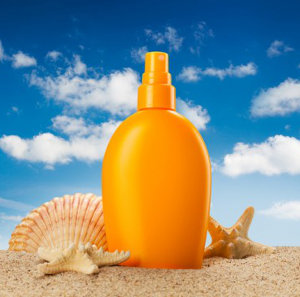 I know that half of you reading this will say “Duh.” But the other half will still not do this for any number of reasons.
I know that half of you reading this will say “Duh.” But the other half will still not do this for any number of reasons.
It is not easy to find a good sunscreen that is comfortable to wear. If it is any comfort, I don’t like wearing sunscreen either. It’s my least favorite product. But I force myself to.
Always take the long-term perspective. What is better for you in the long-term? You only get one skin for life.
2. Use moisturizer or another product that provides some moisture. In other words, use something.
Don’t go out with your skin naked. You don’t go out in public naked. So don’t go out with your skin naked either. Put something on your face. All skincare products are designed to provide at least a minimal amount of hydration or nourishment, and nearly all contain antioxidants. Of course, I am not talking about astringents or cleansers or products you rinse off. I mean a serum, moisturizer, or sunscreen. Everyone can benefit from some nourishment, especially in today’s increasingly polluted environments.
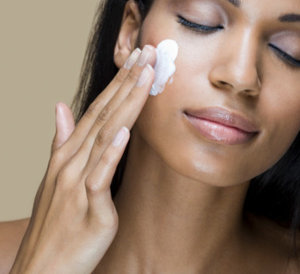 Unfortunately, if our skin is breaking out or it’s feeling bad, the tendency is to want to leave it alone and not use any product on the skin. But it’s exactly when our skin is in poor shape that we need to protect it. Skin that is distressed has a damaged or weak barrier function. The way to strengthen your barrier is to feed it with lipids and humectants that will help you hold onto water.
Unfortunately, if our skin is breaking out or it’s feeling bad, the tendency is to want to leave it alone and not use any product on the skin. But it’s exactly when our skin is in poor shape that we need to protect it. Skin that is distressed has a damaged or weak barrier function. The way to strengthen your barrier is to feed it with lipids and humectants that will help you hold onto water.
Most of you won’t care to remember what ingredients you need in your products. So just find a moisturizing product that you like and make a habit of using it daily. Everyone can benefit from a serum or moisturizer. Even if you don’t feel like you need it (attention: men!), the right product for your skin type will still benefit your skin. It will look and feel better.
Fortunately, the skin care industry has come so far that you have many great options in all price ranges. There is something for everyone. Even a humble budget can get you skincare that will ensure your skin is clean, nourished, and protected. Drugstore products are very decent, so there is no need to over-spend if you can’t afford skincare in other stores.
3. Don’t change products too often. Introduce a new product into your skincare routine one at a time.
Make small, gradual, incremental changes, rather than a dramatic, sudden overhaul of your routine.
 When you make just one change, your skin can handle a negative outcome more efficiently than if it’s dealing with multiple products. It’s also easier to identify the culprit if only one product is causing a bad reaction.
When you make just one change, your skin can handle a negative outcome more efficiently than if it’s dealing with multiple products. It’s also easier to identify the culprit if only one product is causing a bad reaction.
If you’ve changed your entire routine at once, and your skin doesn’t like it, you won’t know why.
NOTE: I show product photos sometimes. Typically, it’s to show new products that I am discovering because most of you want to learn about products and look at photos of products.
The most efficient way for me to do that is to arrange a bunch of them in a single photo (because I don’t have time to take and post many photos.)
But every time I post a picture like this on social media, I worry that someone will think it’s ok to go out and buy all of those products (when it could very well be wrong for their skin). Or worse, think it’s ok to introduce variety into their routine as I often as I do.
What I want you to realize is that I am a skin professional with a keen awareness of all the ingredients in my products, and how they interact together. I also have strong, resistant skin that doesn’t suffer from a chronic problem, such as acne. And I am actively looking for and testing new solutions for both my own skin and other people’s.
If you have a professional advising you, that’s great. If you don’t, just remember – your own routine doesn’t need to be complicated and you don’t need to change your products often. Especially if you don’t have any pressing skin problems. But if you want to change products often because you’re bored or you just want the latest and greatest new thing, that’s fine too. Just make one change at a time.
4. Don’t over-do it on cleansing and exfoliating.
Both cleansing and exfoliating strip the skin. Three things are being stripped:
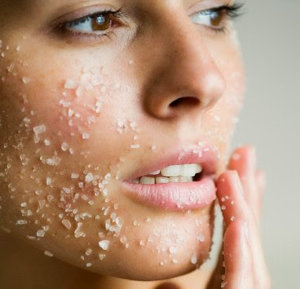 the natural oil (sebum) on your skin, which is meant to lubricate your skin, make it supple, and form part of the protective acid mantle
the natural oil (sebum) on your skin, which is meant to lubricate your skin, make it supple, and form part of the protective acid mantle- the lipid barrier in the epidermis (lipids found in between skin cells and in cell membranes)
- layers of skin (dead skin cells)
Anytime skin is made thinner or deprived of lipids, things get into skin more easily and they travel into skin faster. This is not necessarily a bad thing if you’re looking to increase product penetration, for example exfoliating before applying a mask so that dead skin is cleared away first. But when a product doesn’t suit you, or the ingredients are irritating, the opposite is true. Bad reactions are amplified.
Cleansing twice a day is enough (unless you have an exercise workout, in which case 3 times is fine). And exfoliating 2-3 times a week is sufficient (more on over-exfoliating here).
If you feel that your skin isn’t clean after cleansing, and you are tempted to use strong foaming cleansers or cleanse often – follow the Double Cleansing method. This is truly the most effective and gentlest way to clean your skin. It will clean your skin while keeping your barrier intact and healthy.
5. Eat sensibly. Feed yourself with nutritious food.
They say, you are what you eat. This is especially true for skin. Your skin is a mirror of your internal health. So are your eyeballs, lips, tongue, teeth, gums, and hair. You can tell a lot about someone’s health by looking at these too.
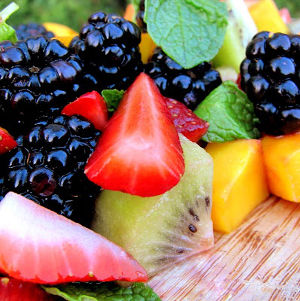 I’m sure what I’m saying is nothing new to you. But what may not be as clear is the connection between vitamins and minerals and the skin.
I’m sure what I’m saying is nothing new to you. But what may not be as clear is the connection between vitamins and minerals and the skin.
Skin is a voracious organ – in a constant state of growth and renewal. Skin cells are born, they migrate, they die, and they fall off. Over and over and over. All of this activity requires fuel! And that’s not even including its job to repair ongoing damage to your skin.
Vital organs get essential nutrients first. Make sure you get the right nutrition for your body so there is enough to go around.
Healthy skin begins with a healthy kitchen.
The easiest way to eat healthy is to put healthy food within easy reach. If there’s nothing in your kitchen but healthy food, you will eat it (eventually). If you’re stocking your kitchen with unhealthy food, you will eat that too!
But eating nutritiously does not mean you have to eat a deprived, sin-free diet. I believe you should eat the foods that you enjoy, even if they’re empty calories, fattening, or bad for you. Just in moderation.
I eat whatever what I want because my regular diet is very nutritious and healthy. I know my body is being fed well, so I don’t feel bad about eating a candy bar or french fries sometimes.
I like to make sure I put in many deposits (healthy food) into the bank (my body), so that some withdrawals (junk food) don’t alter my ‘bank balance’ too much. The healthier you eat consistently, the more you can deviate 🙂
When you eat this way, it also relieves psychological pressure. You feel better about your body even if it doesn’t look exactly the way you want. Knowing your body is in good health gives you a lot of freedom.
Look at your skin that way too. Even if you don’t have blemish-free skin, it can still look healthy and feel comfortable too.
Skin Is Your Defender
I hope this post helps you to focus on what is truly important for skin health – a strong barrier function – and to worry less about imperfections. Too often, I think we beat ourselves up trying to achieve an impossible ideal.
Just like you want your body to be immune to a disease or able to fight a contagious cold virus, you want your skin to be ready for any kind of damage, both the kind that’s inevitable (UV damage) and the kind that is avoidable (stripping your skin of oil).
Over time, a strong barrier function does lead to fewer imperfections and better-looking skin.
Fortunately, achieving healthy skin is within reach for everyone. It does not require a huge budget. All the products you need for healthy skin care can be purchased for less than $15. And even with food, there are nutritious fruits and vegetables that are not too expensive (e.g. carrots, apples, kale just to name a few). Food doesn’t have to be gourmet or exotic to be good for you.
You do need some discipline though. The discipline to stick to good habits and the willpower to avoid temptation, such as buying way more products than you need and changing your routine all the time (beauty hoarders: I am talking to you! 🙂 ) or picking at your skin.
What’s your idea of healthy skin? Share any thoughts in the comments below!
Related Reading:
Want new posts delivered to your Inbox? Sign up for the email newsletter here: Subscribe.


